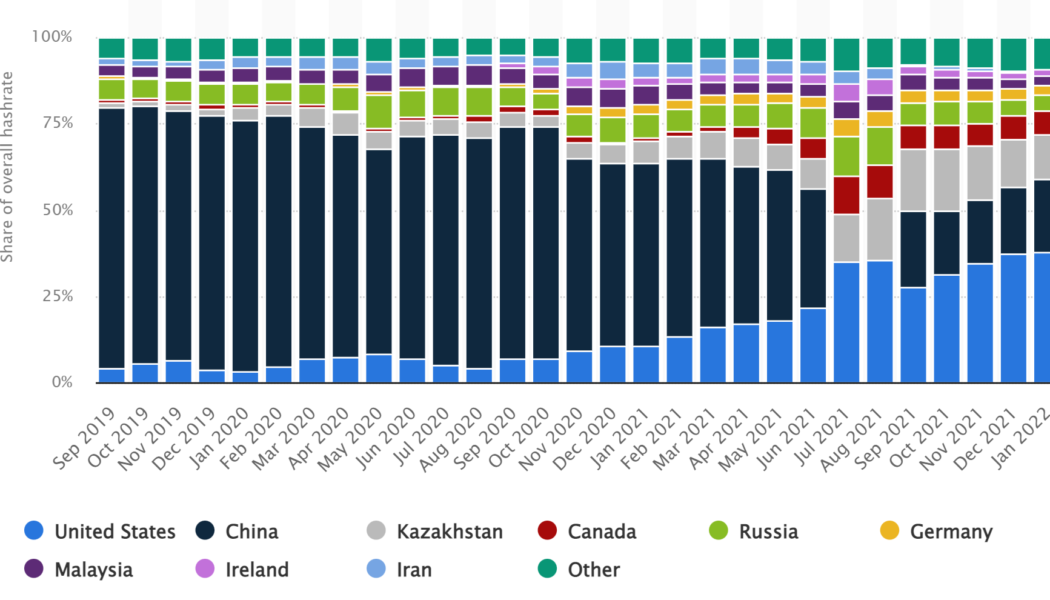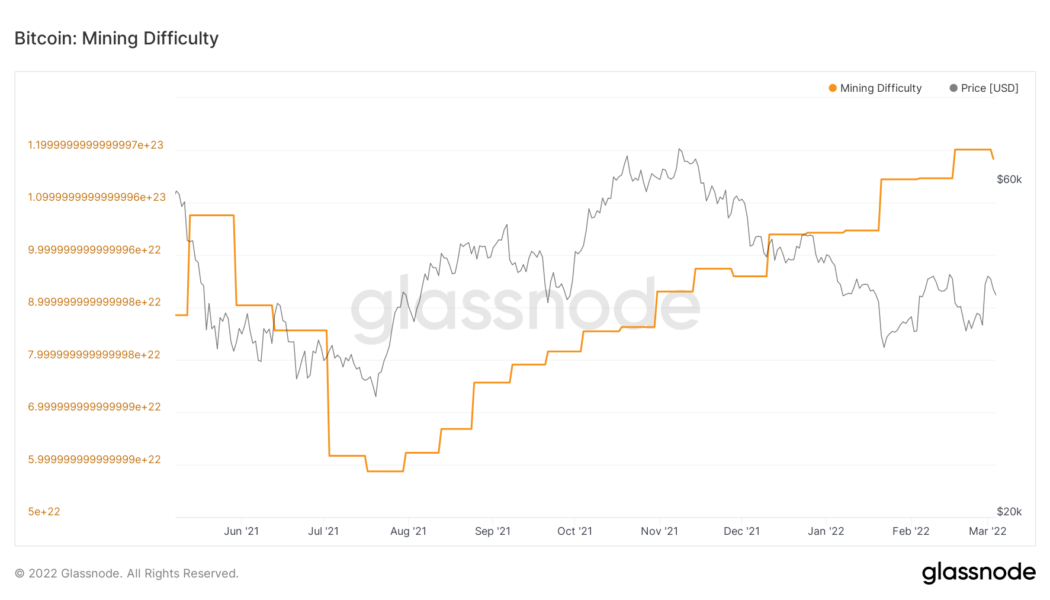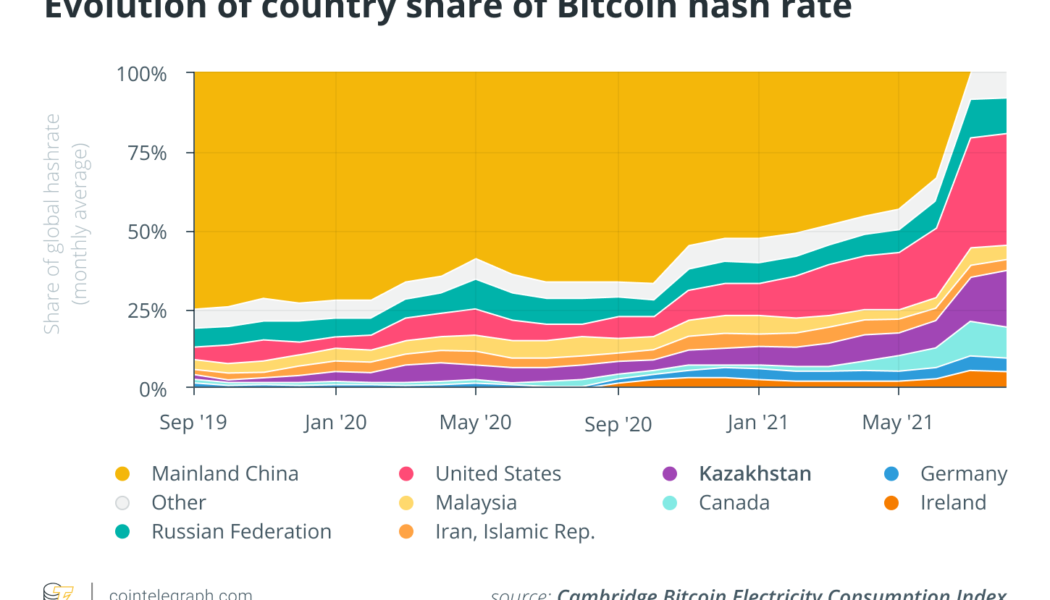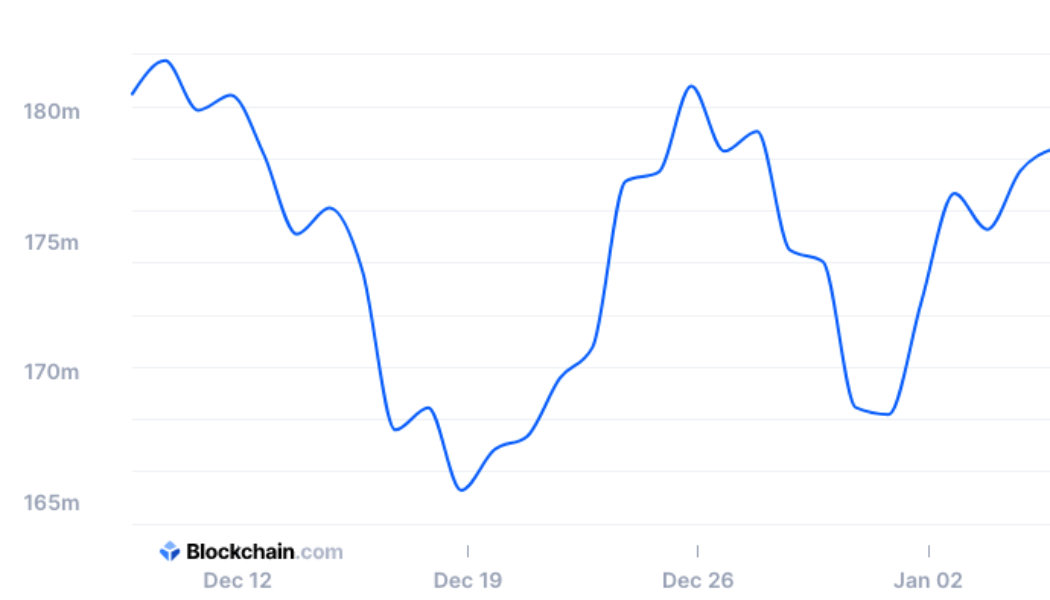Kazakhstan
Kazakhstan central bank recommends a phased CBDC rollout between 2023-25
Kazakhstan, the world’s third-largest Bitcoin (BTC) mining hub after the United States and China, found feasibility in launching its in-house central bank digital currency (CBDC), a digital tenge. The National Bank of Kazakhstan (NBK) revealed the finding following the completion of the second phase of testing. In late October, Binance CEO Changpeng’ CZ’ Zhao announced that Kazakhstan’s CBDC would be integrated with BNB Chain, a blockchain built by the crypto exchange. The country’s primary motivation for conducting studies on CBDC was to test its potential to improve financial inclusion, promote competition and innovation in the payments industry and increase the nation’s global competitiveness. The pilot research focused on offline payments and pr...
Kazakhstan among top 3 Bitcoin mining destinations after US and China
For over a year, the oil-rich Central Asian country of Kazakhstan has maintained its position as the third-biggest contributor to Bitcoin (BTC) mining after surpassing Russia back in February 2021. As of January 2022, Kazakhstan contributed to 13.22% of the total Bitcoin hash rate, positioned right after the historical leaders the United States (37.84%) and China (21.11%), as shown below. Along similar timelines, Cambridge Centre for Alternative Finance data estimated that Kazakhstan’s absolute hash rate contribution (monthly average) was 24.8 exahashes per second (Eh/s). Meanwhile, the US and China contributed 71 Eh/s and 39.6 Eh/s, respectively. The International Energy Agency (IEA), which is co-funded by the European Union, highlighted Kazakhstan’s heavy reliance on non-renewable ...
Binance signs MoU with Kazakhstan to fight financial crime
Global cryptocurrency exchange Binance has signed a memorandum of understanding (MoU) with the Financial Monitoring Agency of the Republic of Kazakhstan as a part of its global law enforcement training program. The program, which involves officials from regulatory and law enforcement organizations worldwide, aims to strengthen industry cooperation with national and international law enforcement in the fight against financial crime and cybercrime. The program further aims to identify and block digital assets obtained illegally and used to launder criminal proceeds and finance terrorism. Kazakhstan has emerged as one of the leading crypto nations for Bitcoin (BTC) mining and in recent times, the Central Asian nation has also beendeveloping favorable crypto regulations such as allowing crypto...
Binance obtains in-principle approval to operate in Kazakhstan
The Astana Financial Services Authority, or AFSA, an independent financial regulator in Kazakhstan, has taken a step towards licensing major cryptocurrency exchange Binance to operate in the country. In a Monday announcement, AFSA said it had granted in-principle approval toward Binance operating as a digital asset trading facility and providing custody services in the Astana International Financial Centre, a financial hub in the capital city of Nur-Sultan. In a Monday blog post, Binance said it was required to complete the application process for approval, which the crypto exchange expected to do “in due course.” According to AFSA CEO Nurkhat Kushimov, the move toward granting Binance a license to operate in Kazakhstan could lead to the development of a “vibrant ecosystem of digital asset...
Here’s how much Kazakh gov’t made off crypto mining in Q1 2022
The government of Kazakhstan, one of the world’s largest countries by the Bitcoin (BTC) mining hash rate distribution, has reported budget earnings derived from cryptocurrency mining. On May 30, Kazakhstan’s state revenue committee of the Ministry of Finance released a report on the amount of total energy fees paid by local crypto miners in the first quarter of 2022. According to the report, Kazakhstan’s budget added 652 million Kazakhstani tenge ($1.5 million) in energy fees from crypto mining in Q1 2022 after the government introduced a digital mining fee on Jan. 1, 2022. The committee stressed that a significant amount of the expected sum of fees has not been received by the budget as the government has shut down a wide number of crypto mining firms in order to “ensure energy security.”...
China returns as 2nd top Bitcoin mining hub despite the crypto ban
The Chinese government has not managed to take down cryptocurrency operations as part of its crypto ban last year as China has re-emerged as one of the world’s largest Bitcoin (BTC) mining hubs, according to a new report. China became the second-largest Bitcoin hash rate provider as of January 2022, months after the local government banned all crypto operations in the country, according to the latest update from the Cambridge Bitcoin Electricity Consumption Index (CBECI) shared with Cointelegraph on May 17. Bitcoin miners in China accounted for 21.1% of the total global BTC mining hash rate distribution as of early 2022, following only the United States, which produced 37.8% of the total hash rate as of January, according to the data. China was once the world’s largest Bitcoin m...
Kazakhstan ramps up power consumption reporting requirements for crypto miners
The government of Kazakhstan has laid out new reporting requirements for cryptocurrency mining operators with a keen eye on how the industry’s energy usage affects the local power grid. The order published by the country’s Minister of Digital Development earlier this week compels digital mining businesses to provide comprehensive information 30 days before starting operations. The electricity consumption and “technical specifications” for connection to the power grid must be provided before commencing operations. The amount and type of mining equipment used, the customs cargo declarations for that equipment and any investments planned for the next 12 months must also be included. Kazakhstan was flooded with an influx of crypto miners after the Chinese government cracked down on the p...
Bitcoin mining difficulty drops for the first time this year
For the first time since November 2021, the Bitcoin (BTC) mining difficulty adjustment has dropped, correcting 1.49%. The move follows a succession of six consecutive positive difficulty adjustments, in which the mining difficulty and hash rate hit all-time highs. The average hash rate over the past two weeks fell to 197.19 exahashes per second (EH/s), making the average block time exceed the 10-minute target at 10 minutes 9 seconds. As a result of the difficulty adjustment, miners competing to solve the next valid block found it marginally easier. Bitcoin mining difficulty marginally dropping after an 8 month climb. Source: Glassnode The difficulty adjustment is one of the Bitcoin protocol’s most prominent features. Every two weeks or 2,016 confirmed blocks, the difficulty for mining a ne...
Bitcoin miners’ resilience to geopolitics — A healthy sign for the network
Considering that Bitcoin (BTC) is a blockchain network that uses a proof-of-work (PoW) consensus mechanism, miners are a highly significant part of the market dynamics of the network and the community itself. On Jan. 5, it was revealed that Kazakhstan shut down its internet services due to unprecedented political unrest sparked by rising fuel prices in the country. The protests in Kazakhstan began on Jan. 2 in the town of Zhanaozen to fight against the government doubling the price of liquefied petroleum gas (LPG), which is widely used as car fuel in the country. This change in pricing came as a result of the gradual transition to the use of electronic trading of LPG in order to abolish the existing state subsidies for fuel and allow the market to discover the price of the asset. However, ...
Binance taps former central bank exec to push compliance in CIS and Russia
Binance, the world’s largest cryptocurrency exchange, is putting more effort into increasing compliance in the Commonwealth of Independent States (CIS), Russia and Ukraine. Binance is planning to extend its operations in the region and boost local cryptocurrency compliance and education, Gleb Kostarev, head of operations for Russia and the CIS at Binance, told Cointelegraph on Tuesday. The company additionally expects to focus on the local Binance Smart Chain development and community, he noted. As part of the effort, Binance announced several local hires, including Olga Goncharova, Binance’s new director of government relations in Russia and the CIS. Goncharova previously served at the Bank of Russia as director of the bank’s report processing department from 2014. She was responsible for...
Chinese crypto miner BIT Mining ‘unlikely’ to flee Kazakhstan: Report
Despite major internet blackouts amid anti-government protests in Kazakhstan, some Bitcoin (BTC) miners operating in the country are not planning to leave the country just yet. BIT Mining, one of the largest BTC mining companies that relocated operations from China to Kazakhstan last year, is still evaluating the impact of political unrest in Kazakhstan, Chinese industry news agency 8BTCnews reported Friday. “It is unlikely that our mining machines will be evacuated to North America,” a spokesperson for BIT Mining reportedly said, adding that the firm will be closely monitoring the situation. The representative also noted that Kazakhstan is not BIT Mining’s main area of business, as it has a number of “mid-to-high-end mining machines” deployed in North America. “It is unlikely th...
Crypto Biz: The rise of the Bitcoin treasury, Dec. 30–Jan. 6
The price of Bitcoin (BTC) cratered below $43,000 on Thursday in a selloff that was stoked by the Federal Reserve’s renewed pledge to start unwinding its pandemic stimulus support. For the so-called diamond hand investors among us, the decline presents an attractive entry point to continue accumulating BTC at discount rates. 2021 was the year that institutions and corporations became major movers and shakers in the Bitcoin market. By the end of the year, corporations and investment funds held roughly 1.48 million BTC, which represents 7% of the current circulating supply. Do you think these large, strategic investors are going to get shaken out by FUD? Below is the concise version of the latest “Crypto Biz” newsletter, which is delivered to your inbox every Thursday. For a comprehens...























